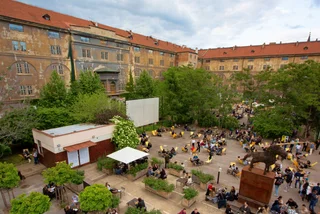Czech President Petr Pavel has signed into law a sweeping amendment that will tighten asylum and migration rules starting in January, officials announced Thursday.
Proponents of the measure from coalition parties said the reform will “speed up the procedure for international protection and limit its abuse.” The changes are also intended to improve the state’s ability to monitor the movement and residence of asylum seekers and migrants, according to lawmakers behind the bill.
PARTNER ARTICLE
The amendment is based on the EU’s migration pact and reflects measures prepared by other member states against illegal migration. It also revises a special law enacted after Russia’s invasion of Ukraine, which gave temporary protection to refugees.
Here’s what the new law will bring.
1) Asylum and deportation procedures merged
The procedure for refusing international protection and issuing a deportation order will be combined into one, with shorter deadlines for the Interior Ministry and courts.
2) Ban on repeat asylum claims
Foreigners who have been expelled will no longer be allowed to apply for asylum. Expulsion orders issued by another EU state will be automatically recognized in Czechia.
3) Ukrainian refugee rules tightened
Applications for temporary protection may be dismissed if the applicant already has protection elsewhere in the EU, once the Interior Ministry notifies the European Commission that Czechia faces capacity strain.
4) Tighter monitoring of migrants
Authorities will be able to determine migrants’ place of residence, including ordering stays in asylum facilities. Police may access data from migrants’ mobile phones to confirm identity.
5) Stricter penalties for offenses
A foreigner who commits three registered offenses within one year—such as shoplifting, assault, or disturbing public order—may lose the right to stay.
6) Limits on benefits and work
Asylum seekers may face restricted access to the labor market and to benefits such as food and housing. They must undergo health and epidemiological checks and submit the required documents to the authorities.
Wider efforts to curb illegality
Last month, Czech Interior Minister Vít Rakušan announced new legislation to speed up asylum and deportation cases and prevent repeated protection claims. He said the law aligns with EU efforts to curb illegal migration, stressing that “the Czech Republic cannot be left behind.”
The move is part of a broader push to cut asylum numbers; earlier this month, Czechia and five other EU states called for a stricter EU migration system. At an EU summit earlier this year, Rakušan also urged more support for migrants’ origin countries to tackle root causes.













 Reading time: 2 minutes
Reading time: 2 minutes 




























